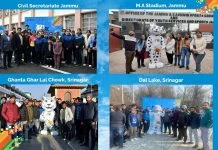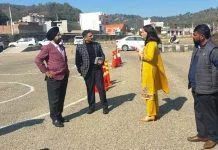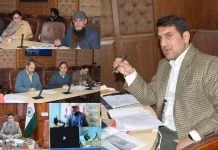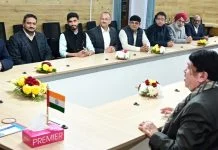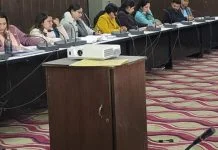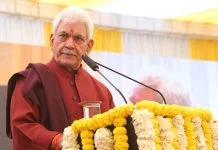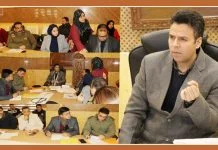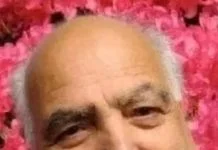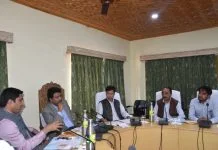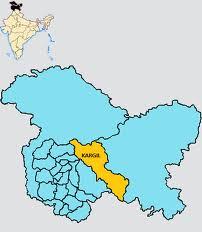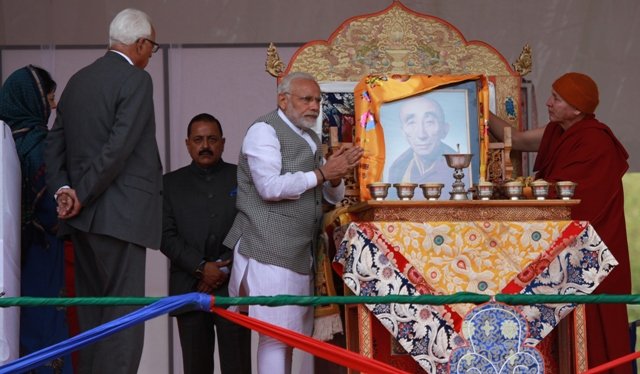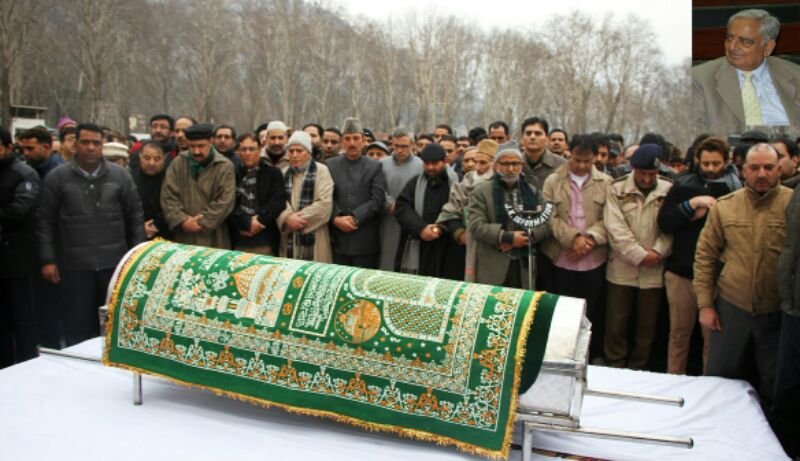The Chief Minister had complained of exhaustion during his hectic tour of Srinagar city on December 22. He was flown to New Delhi on December 24 and was kept in the Intensive Care Unit (ICU) of AIIMS.
The departed leader will be accorded State funeral. The state has also declared seven-day mourning as a mark of respect to the departed leader. All State government offices and educational institutions in the State shall remain closed today. National & State Flags will be flown half-mast during the mourning on all buildings and places where these are flown.
Born on January 12, 1936, Mufti Mohammad Sayeed, had an illustrious political career, that culminated when he became the Chief Minister of the state for the first time in 2002. He was sworn in for the second time as Chief Minister of Jammu & Kashmir on March 01, 2015.
Mufti Sayeed had also earlier served as Union Home and Tourism Minister.
Detailed Profile of Mufti Mohammad Sayeed
One of the last politicians in Jammu & Kashmir, who had grown into the mould of an upright and unblemished statesman, Mufti Mohammad Sayeed represented courage of conviction and a lifelong political struggle spanning over five decades. His vision for the state of Jammu & Kashmir as a distinct feature of the idea of India is complemented by the clear-cut democratic construct of his political thought, an inclusive polity and ingenious development.
As he assumed office of Chief Minister of Jammu & Kashmir for the second time on 1st March 2015, it seemed Mufti Mohammad Sayeed was destined to be the man for hard times. In 2002 when he became the Chief Minister, with just 16 seats in the State Assembly, in alliance with the Congress, J&K was reeling under extremely adverse conditions on politico-economic fronts. Personal liberties were severely restricted and our army was in an eye-ball to eye-ball confrontation with Pakistan in the aftermath of the attack on Parliament.
Responding to the people’s innermost yearning for peace with dignity, Mufti after assuming charge as the Chief Minister of J&K in 2002, crusaded the “Healing Touch” policy to repair the people’s hurt psyche, salvaging their bruised dignity, rekindling a new hope in their hearts and motivating them to mould their destiny through a participatory political and democratic process. The result was there for all to behold and fortunately, the country’s leadership, at that time also understood and appreciated the rejuvenating and hopeful political transformation in the State and responded to it in good measure.
Seen as a visionary leader, a smart political strategist and masterful politician, Mufti’s arrival on the stage in J&K in 2002 and his deft handling of the delicate political equations resulted in an almost instant change in the situation, both within the State and in the regional context. His invitation to the then Prime Minister Atal Bihari Vajpayee to address a rally in Srinagar, first ever for a Prime Minister in nearly two decades, from the PDP stage, triggered a new wave of peace efforts which culminated in withdrawal of forces from forward areas, ceasefire along the borders, disbanding of instruments like STF and SOG, scrapping of POTA and release of political prisoners. It also led to a direct engagement between India and Pakistan and of the Central Government with the separatist leaders in Kashmir.
Mufti’s vision for the State and the region articulated in PDP’s Self-Rule framework besides suggesting a slew of economic and political measures advocating a sub-regional trade arrangement with a Free Trade Zone in Jammu & Kashmir to be implemented under SAFTA or under a separate arrangement between New Delhi and Islamabad.
Mufti Mohammad Sayeed believed that facilitating free movement of goods and people through the traditional cross-LoC routes in Jammu & Kashmir would help the policymakers on the two sides of the divide to facilitate the political changes that the people in the region so badly need. He saw opening of Srinagar-Muzaffarabad and Poonch-Rawalakote roads along the LoC as a stepping stone towards forging a new economic alliance in the region.
Within the State, Mufti’s political focus was on connecting communities and regions into one conglomerate of harmonious diversities. His emphasis on improving the trust levels between two main regions of Kashmir and Jammu has remained the driving force for his party PDP’s political engagement in all the regions and sub-regions that it could emerge as a unifying force that offers channels of aspirations and representation to each one of them.
Early Life
Born in Baba Mohalla in Bijbehara town of district Anantnag on 12th January 1936, Mufti Mohammad Sayeed’s early life was typical of the new bourgeoisie that emerged in Kashmir in the middle of the century. Having graduated from S. P. College in Srinagar, he went on to obtain a degree in Law, and a post-graduate degree in Arab History from Aligarh Muslim University (AMU).
Although Mufti Mohammad Sayeed hoped to gain government employment, he was persuaded by his friends to start a law practice in Anantnag, and to join politics. He joined the Anantnag Bar Association and briefly practiced as a lawyer at District Court, Anantnag.
Political Career
Mufti Mohammad Sayeed was a strong votary of friendly relations between India and Pakistan, which he believed was critical to the political stability in J&K as well the Subcontinent. He was a staunch believer in the democratic polity and was responsible for introducing political competition in the state.
In the late 1950s he joined the circle around prominent lawyer and National Conference (NC) leader P. L. Handoo. He followed Handoo into the breakaway Democratic National Conference (DNC), led by G.M. Sadiq, along with D. P. Dhar, Syed Mir Qasim and G. L. Dogra. He was appointed District Convener of the new organization – DNC, the first formal political post he held.
Mufti Mohammad Sayeed was elected to the Assembly from Bijbehara in 1962, and retained the seat in 1967. As a result, he was appointed a Deputy Minister by G.M. Sadiq.
In 1972 the late leader became a minister in the Cabinet, headed by Syed Mir Qasim and was also elected the party’s leader in the Legislative Council.
In 1975, he was made the leader of the Congress Legislature Party and Jammu & Kashmir Pradesh Congress President. He continued to hold the post of PCC Chief in J&K for over a decade.
In 1986, he was appointed as Union Tourism Minister in the Government headed by the then Prime Minister, Rajiv Gandhi.
Mufti Mohammad Sayeed resigned from the Union Government and the Congress following Rajiv-Farooq Accord of 1987.
He later joined the Jan Morcha, led by V. P. Singh and was appointed Union Home Minister in 1989, after having won the Lok Sabha elections of that year as Jan Morcha candidate from Muzaffarnagar, in Uttar Pradesh.
Mufti Mohammad Sayeed returned to J&K politics after having rejoined the Congress in 1996. He won the Anantnag Lok Sabha seat in 1998, but soon resigned from both his position and the Congress party to form a new regional political party- the Peoples Democratic Party (PDP).
After remaining in the Congress for better part of his life, Mufti along with some likeminded associates and Mehbooba Mufti, his daughter, founded the Peoples Democratic Party (PDP) in 1999 and led the first PDP-Congress coalition government in the State from 2002 to 2005.
In 2002, Mufti Mohammad Sayeed became the Chief Minister of Jammu & Kashmir for the first time. His party PDP won 16 seats and formed an alliance with Congress to assume power from October 2002 to November 2005. PDP was an important ally of United Progressive Alliance-I at the Centre.
The late leader’s first term as the Chief Minister of the State between 2002 and 2005, led to significant steps like opening of Srinagar-Muzaffarabad road, initiation of trade and travel across the Line of Control (LoC) without passports and visas, with India and Pakistan making some significant concessions on Kashmir.
The prospects of PDP started to shine again in the Lok Sabha election of 2014 when it won all the three seats in Kashmir valley.
Under the astute leadership of Mufti Mohammad Sayeed, PDP has emerged as a dominant regional political force in Jammu & Kashmir introducing democratic competition in J&K.
A much-respected politician, Mufti Sayeed will be remembered for his tenacity, focus, steadfastness, and ability to make critical decisions during difficult times.

